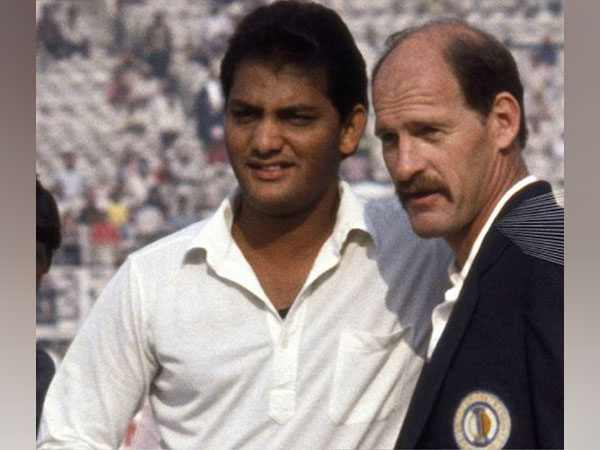Nestled in the heart of Kolkata, the historic Eden Gardens Stadium stands as a silent witness to a myriad of cricketing milestones. Among these, the enduring connection between Eden Gardens and South African cricket is eternally preserved, as it was at this iconic stadium on November 10, 1991, that the nation celebrated a heartfelt return to the international arena.
This historic day marked the end of 21 years of sporting isolation due to apartheid, as South Africa took the field for the return match, creating a momentous chapter in cricket history.
Decades under Apartheid
In 1970, the implementation of apartheid policies, which enforced racial segregation and prohibited non-white players from representing the national team, led to South Africa’s suspension by the International Cricket Council (ICC). The stifling impact of apartheid on cricket’s growth in South Africa curtailed the careers of several eminent players and prompted others to explore opportunities abroad.
India’s Embrace: Invitation to Resurgence
India warmly embraced South Africa, inviting them back into the cricketing community. The late Jagmohan Dalmiya, then-BCCI secretary, played a crucial role in arranging a three-match ODI series, hastily accommodated before India’s scheduled tour to Australia.
The comeback match was scheduled for November 10, 1991, in the City of Joy, Kolkata.
In an interview, Mohammad Azharuddin, who captained the team against Clive Rice’s South Africa, fondly recalled the series as a landmark moment in Indian cricket. He credited the BCCI for paving the way for South Africa’s return and organizing the series on short notice.
The Grand Welcome
The South African team, led by the 41-year-old Clive Rice, was joyfully greeted in Kolkata (formerly Calcutta), with enthusiastic fans lining the entire route from the airport to the team hotel.
The South Africans were charmed by the welcoming ambience and the Indian tradition of greeting them with a ‘Namaste’ and a vermillion dot.
The Historic Return: Rice Leads the Way
The historic game marked South Africa’s first-ever ODI and their maiden encounter with India in any form of cricket.
On that day, Clive Rice led the South African side, consisting of several debutants, to the lush green outfield to play an international match and redeem themselves. Indian skipper Mohammed Azharuddin won the toss and elected to field, and hosts were able to restrict the visitors to 177/8 in a rain-affected 47-over innings.
A responsible half-century from veteran Kepler Wessels and a partnership with Adrian Kuiper, who scored 43, helped them post a total of 177 on the board. Kapil Dev and Manoj Prabhakar’s magnificent spells kept the Proteas’ scoring rate in check.
Defending a below-par total, South Africa displayed remarkable resilience, spearheaded by Allan Donald, who was yet to make a name for himself. Donald made a sensational entry, dismantling India’s top order with a stellar five-wicket haul (5/29). Despite his efforts giving the Proteas a chance, a gutsy half-century (66) from the 19-year-old Sachin Tendulkar and a splendid knock of 55 runs by Pravin Amre ensured India’s victory. Despite losing seven wickets, India comfortably chased down the target and won the match by three wickets.
According to the ICC, the emotional South African captain was asked about his feelings on finally getting a chance to play at the highest level, to which he replied, “I know how Neil Armstrong felt when he stood on the moon.” Those three ODIs against India turned out to be Rice’s only international appearances.
Fast forward 32 years, South Africa returned to Eden Gardens to play India in the ongoing ICC World Cup 2023 campaign; however, they suffered a massive 243-run defeat against hosts India.
Meanwhile, having already sealed a place in the semi-final of the ICC Men’s Cricket World Cup, South Africa is all set to take on Afghanistan on Friday in Ahmedabad.














